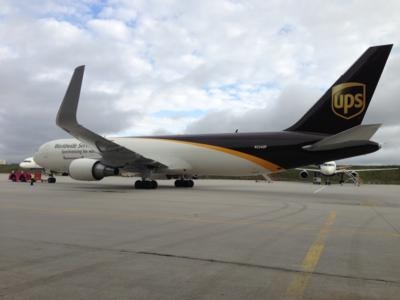Thu, May 09, 2013
Advertisement
More News
 ANN's Daily Aero-Linx (05.06.25)
ANN's Daily Aero-Linx (05.06.25)
Aero Linx: International Federation of Airworthiness (IFA) We aim to be the most internationally respected independent authority on the subject of Airworthiness. IFA uniquely combi>[...]
 ANN's Daily Aero-Term (05.06.25): Ultrahigh Frequency (UHF)
ANN's Daily Aero-Term (05.06.25): Ultrahigh Frequency (UHF)
Ultrahigh Frequency (UHF) The frequency band between 300 and 3,000 MHz. The bank of radio frequencies used for military air/ground voice communications. In some instances this may >[...]
 ANN FAQ: Q&A 101
ANN FAQ: Q&A 101
A Few Questions AND Answers To Help You Get MORE Out of ANN! 1) I forgot my password. How do I find it? 1) Easy... click here and give us your e-mail address--we'll send it to you >[...]
 Classic Aero-TV: Virtual Reality Painting--PPG Leverages Technology for Training
Classic Aero-TV: Virtual Reality Painting--PPG Leverages Technology for Training
From 2019 (YouTube Edition): Learning To Paint Without Getting Any On Your Hands PPG's Aerospace Coatings Academy is a tool designed to teach everything one needs to know about all>[...]
 Airborne 05.02.25: Joby Crewed Milestone, Diamond Club, Canadian Pilot Insurance
Airborne 05.02.25: Joby Crewed Milestone, Diamond Club, Canadian Pilot Insurance
Also: Sustainable Aircraft Test Put Aside, More Falcon 9 Ops, Wyoming ANG Rescue, Oreo Cookie Into Orbit Joby Aviation has reason to celebrate, recently completing its first full t>[...]
blog comments powered by Disqus




